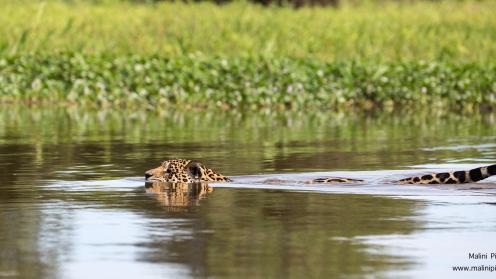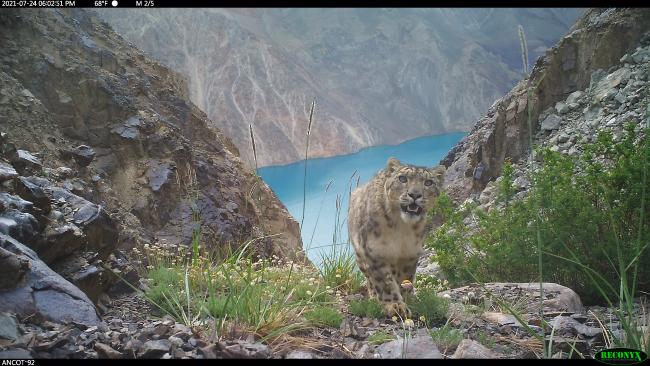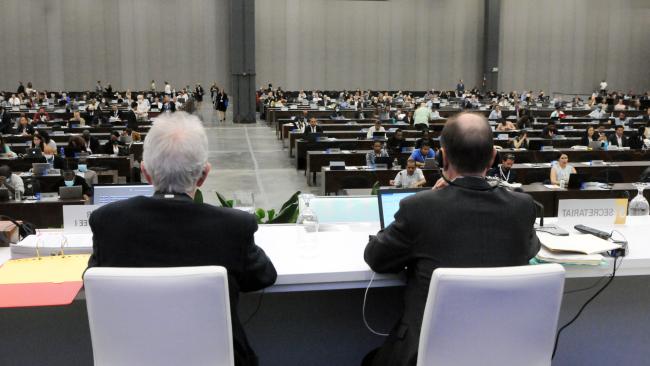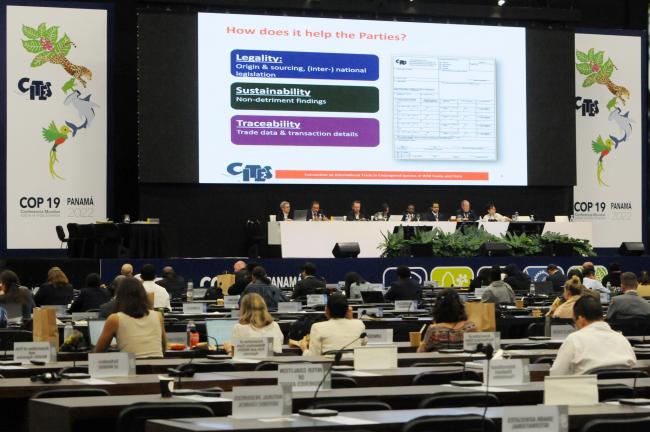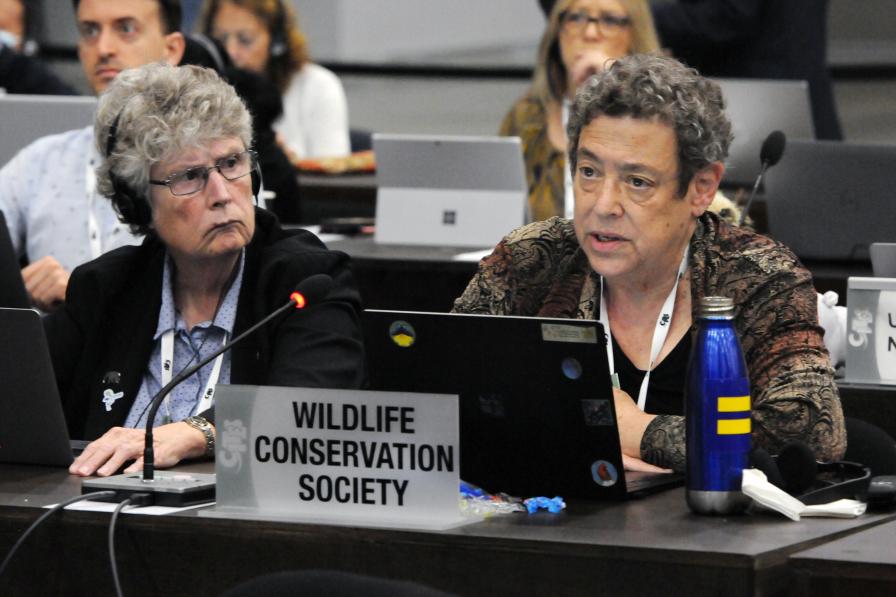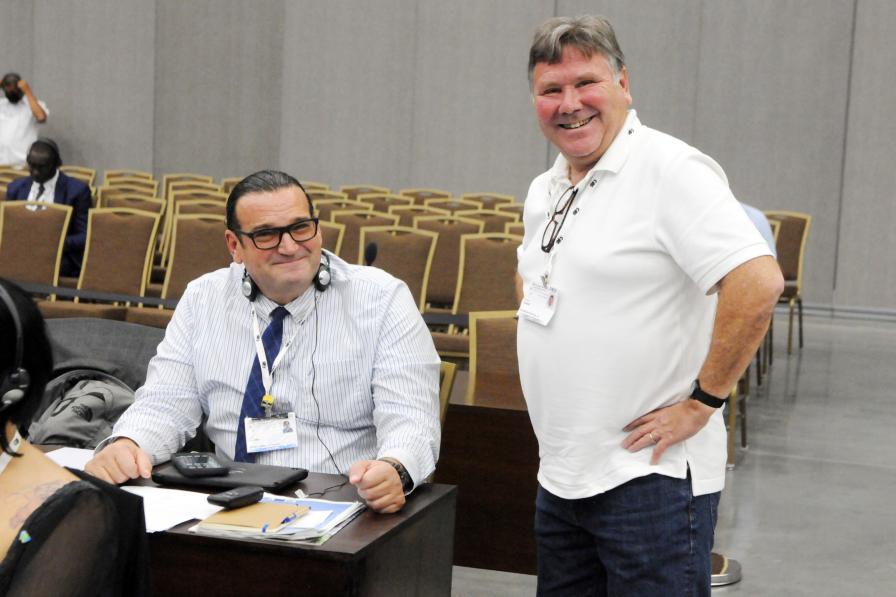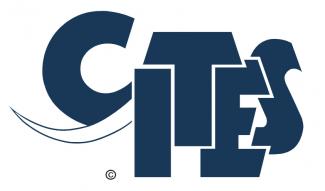If some delegates returned refreshed from a weekend that involved boating on Gatún lake, or looking for Panama’s abundant wild animals and birds, others seemed weary from late-night work to advance agenda items. Several rested to recover from COVID-19 symptoms.
Want to dive deeper? Read the full Earth Negotiations Bulletin daily report.
As the second week of the 19th Meeting of the CITES Conference of the Parties (CITES CoP19) began, Committee I continued its consideration of listing proposals. Namibia’s proposal to transfer the Namibian population of southern white rhinoceros from Appendix I to Appendix II was accepted with an amendment to allow trade in live animals for in-situ conservation purposes, within the species’ natural and historical range in Africa. The US proposal to transfer the Aleutian cackling goose from Appendix I to Appendix II, highlighting its “remarkable recovery,” was welcomed by many parties. Singapore’s proposal to transfer the straw-headed bulbul from Appendix II to Appendix I, given the species has experienced a rapid decline in population across Southeast Asia, was agreed by consensus with a 12-month delay.
In Committee II, Asian big cats, rhinoceroses, pangolins, jaguars, seahorses, and the Big Cats Task Force were some of the issues discussed. Committee II continued meeting in an evening session to make up for delays.
Working groups on CITES and forests, as well as the budget working group, met on the sidelines and during meal breaks.
Many side events took place, including on:
- Participation of local communities in the management of protected areas;
- Digital CITES Permitting; and
- Aquatic species listed in the CITES Appendices.
All ENB photos are free to use with attribution. For CITES CoP19 please use: Photo by IISD/ENB | Diego Noguera
